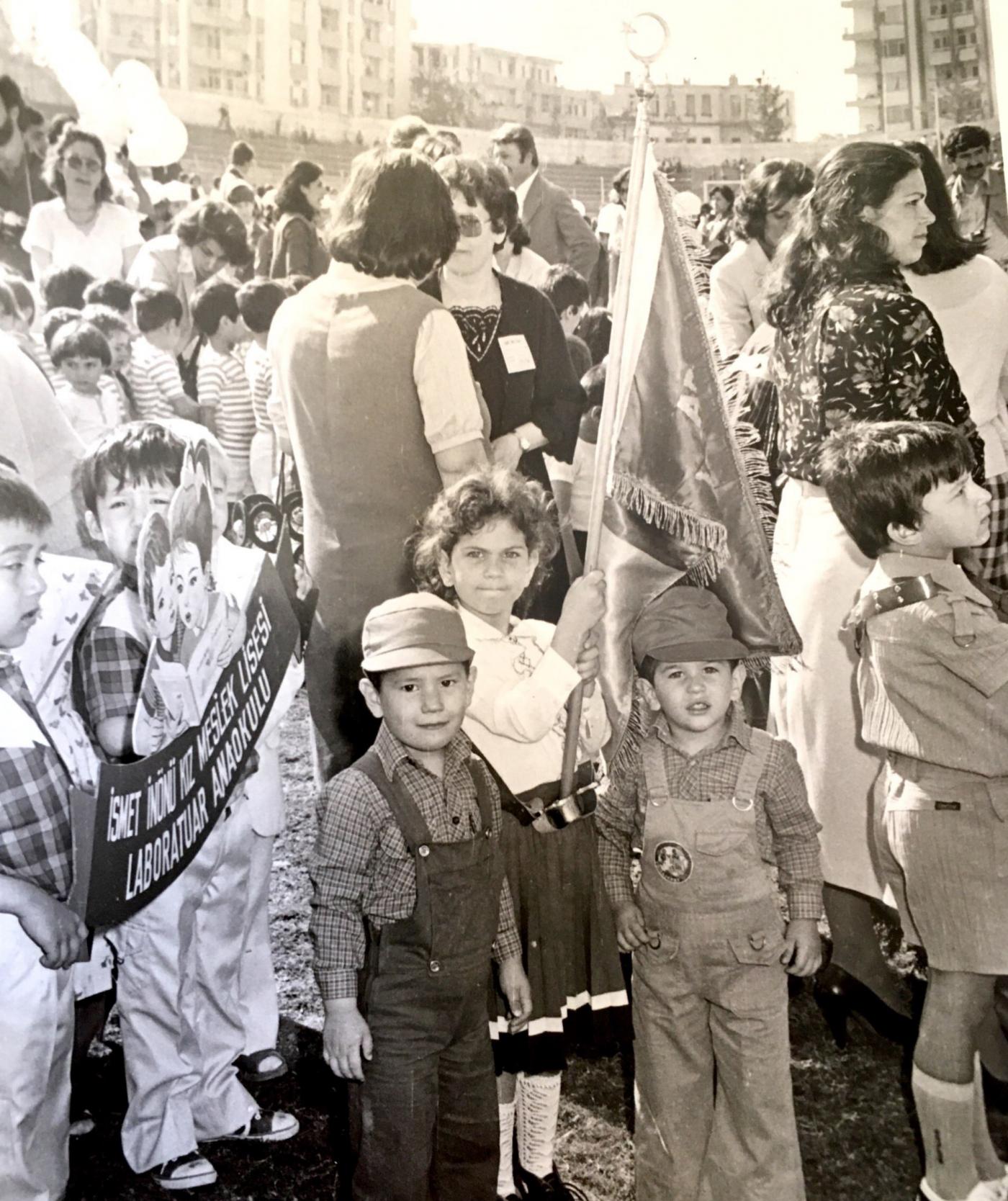UU researcher Akdag about the earthquake in her home country:
‘People don’t even realise the psychological impact such a disaster can have’

The day of the earthquake, Akdag made a donation right away but that didn’t alleviate her feelings of numbness and helplessness. To her, the scale of 7.8 sounds like “talking about stars millions of light years away.”
Akdag grew up in Adana, a city with 1.8 million inhabitants in southern Turkey Akdag remembers to be very warm and green that got struck heavily. Having lived there until age 8, she has fond recollections of her school, teachers and friends as well as swimming after classes, viewing it as “the perfect school life.” Even though she did not visit it in a while, her family stayed in touch with friends and neighbours. “A few hundred people dying in my city is nothing compared to the total casualties - such a natural disaster changes the scales, completely. Sometimes my brain hurts just thinking about it. Luckily, everyone I know personally is safe.” Still, fear lingers. “Imagine if this had happened in Istanbul. Thirty million people live there.”
She flew to Istanbul after the interview on February 27. Her family had booked tickets to Turkey before the disaster occurred. It’s a “different type of vacation” she says and offers her an opportunity to connect locally. Akdag is afraid, but also certain that if something like this were to happen again, it would be better for her to be there, with her family.
The idea of getting together gives me hope

Photo: Almila Akdag
In response to the earthquakes, Utrecht University organised a gathering on February 20 for students and staff involved with the disaster to exchange experiences and support each other. This follows similar initiatives for Iranian, Ukrainian, Russian and Belarussian students. Akdag attended this meeting just before she went away to Turkey.
“The idea of getting together, even if you don’t talk, it gives a bit of hope”, says Akdag, who decided to attend the meeting to do “something more personal” for her country. According to her, the atmosphere at the gathering was intimate, personal and vulnerable. “I knew some of the people there, they were from my faculty. But I guess we never sat down and cried together before.” Many attendees had not even acknowledged their pain before the gathering. Akdag believes it is beneficial for students to share their thoughts and feelings with each other after being forced to stay resilient for so long. She says a disaster like this takes a heavy toll physically and psychologically.
Sometimes you don't even realise that you need help
Those present in the gathering held by UU also discussed how they can get organised and find ways to properly help those in need, considering the alleged attempt from the Turkish state to control the donations coming in.
Akdag herself is currently investigating additional ways to help the victims of the earthquake alongside her faculty. In her view, psychological help is vital as some people do not even realise the effects such a disaster can have on their mental health. She believes that encouraging people to come to such meetings will increase mindfulness. “Sometimes you don’t even realize that you need help.”
Personally, her biggest need at this time is to connect with others. She thinks it would be great if UU could be a facilitator in that regard by informing students about relevant events. She only heard of the gathering thanks to a colleague who posted the registration link on a Teams channel, notifying all of her Turkish colleagues. “Otherwise, I would have missed it”.
She would also like to see UU organise a fundraiser like other universities in the Netherlands did. UU only shared an account to which people, in general, can donate, it is not an initiative of the university. “Other universities, such as Eindhoven, organised a fundraising event. Eindhoven raised approximately 19,000 euros.”
Maybe you will learn something about the aftermath
But Akdag had another reason for going to the meeting: she has been working on growing an oral history archive in the hopes of documenting a more human perspective on events such as this one. The gathering was thus an opportunity to meet people who might be interested in volunteering for the project. “Twenty-five years from now, the articles that will be published will all mention the official numbers of people who died. Maybe you will learn something about the aftermath but you are not going to see the feelings and experiences of individuals.” Akdag’s end goal, therefore, is to collect testimonies that help track somatic information such as breathing and heartbeat patterns in order to enhance the understanding and treatment of mass trauma. “We want to reach out to everyone living in the Netherlands who has been affected by the earthquake and would like to share their experiences, as well as volunteers who can help conduct interviews in Arabic, Kurdish, Turkish and Dutch.”
Interested in participating in Akdag’s oral history project? You can reach out to her through her email: a.a.akdag@uu.nl